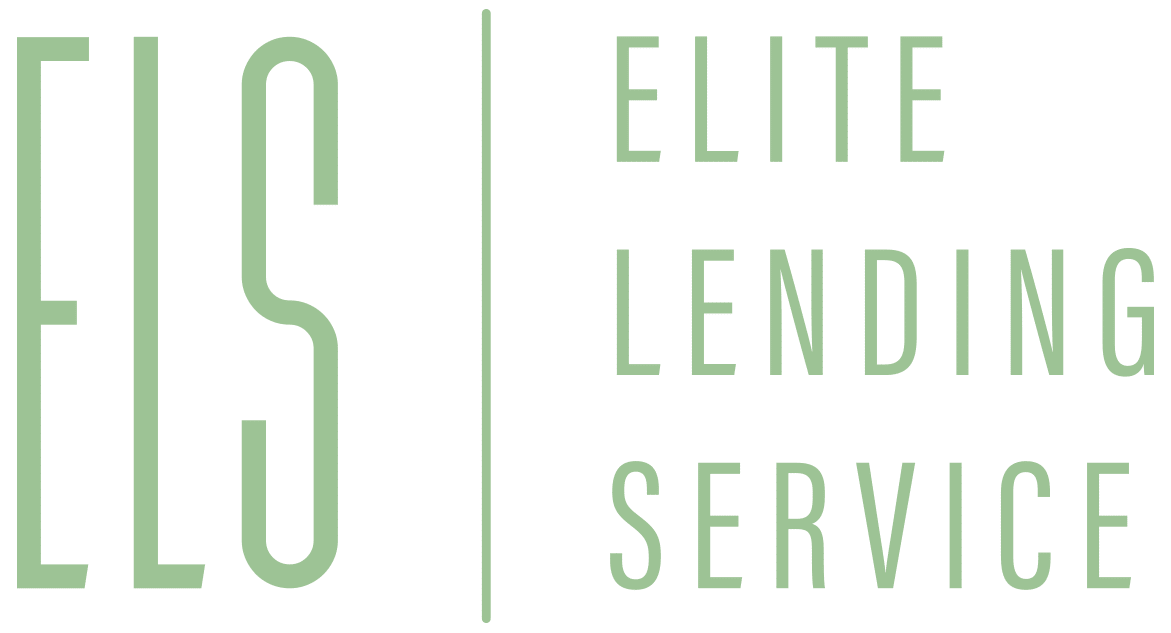Exploring Conventional Home Loans: What You Need To Know

Buying a home? It’s exciting, yet sometimes confusing, especially when it comes to choosing the right loan. You want the best deal but might not know where to start or what fits your needs.
Here’s something you might not know: Conventional home loans are one of the most popular types out there.
In simple terms, these are loans that meet certain guidelines set by Fannie Mae and Freddie Mac—two big names in the mortgage world. They come with options like fixed or adjustable rates and specific borrowing limits.
This article will guide you through what conventional home loans are all about, their benefits, and how to get one step closer to owning your dream home.
Ready for clarity? Keep reading!
Key Takeaways
- Conventional home loans are a popular choice because they have competitive interest rates and flexible terms. They allow borrowing up to $453,100 and offer fixed or adjustable rates.
- You need a credit score of 620 or higher to qualify for these loans. Putting down 20% can save you from paying private mortgage insurance (PMI), but lower down payments are also accepted with PMI fees.
- The application process involves getting pre-qualified and pre-approved, gathering important documents like W-2 forms, tax returns, pay stubs, bank statements, and understanding closing costs which range from 2% to 5% of the loan.
- Elite Lending Service offers expertise in conventional mortgage financing since 1997. They focus on finding the best solutions tailored to individual financial situations through transparent communication.
- Misunderstandings about down payment requirements, credit scores needed, and the role of private mortgage insurance might prevent people from exploring conventional loans’ benefits fully.
Table of Contents
Understanding Conventional Home Loans

Understanding Conventional Home Loans:
– A conventional home loan offers competitive interest rates and flexible terms.
– It provides financing for a range of property types, from primary residences to investment properties.
Definition and features
Conventional home loans, often known as conforming mortgages, are the top pick for many people buying houses. They match up with the loan limits these special government agencies have set and let you pick between stable or changing interest rates.
This choice is perfect for folks wanting to buy their perfect house without borrowing more than $453,100.
These mortgages have different setups to fit all kinds of money situations. You can go for a loan where your monthly payment stays the same from start to finish, or choose one where the interest rate might start off lower but change over time.
If you like clear and simple loan terms, conventional loans offer ways to make buying a house both affordable and secure.
Types of conventional loans (fixed vs. adjustable rate)
Choosing the right mortgage is important for home buyers. Knowing the difference between fixed-rate and adjustable-rate loans can help a lot. A fixed-rate mortgage keeps your interest rate the same for the whole loan.
This makes it easy to plan your budget because you don’t have to worry about rates going up. Whether you choose a 15 or 30-year term, you’ll always know what your monthly payment will be.
On the other hand, an adjustable-rate mortgage (ARM) starts with a lower interest rate than fixed ones but can change later on. The low rate lasts for about five to seven years and then it might go up depending on the market.
This choice could be good if you plan to move before the rate changes or think you can get a better rate by refinancing later on. It’s really important to think about how long you’ll live in your home and if you’re okay with your payments possibly going up in the future.
You get some flexibility in managing your loan costs and planning for your money future by looking at both options. Everyone’s situation is different—some people like knowing their payment won’t change while others take their chances on saving money now and hope for cheaper rates later.
Loan limits and eligibility requirements
Conventional home loans limit how much you can borrow, with the current maximum being $453,100. If you’re hoping to buy a house and need a loan bigger than this amount, you might have to look into other loan options like jumbo mortgages.
But for many buyers, especially those buying their first home or shopping in areas with reasonable prices, this limit is usually enough to get a nice house.
Getting approved for these loans involves meeting certain requirements. Lenders want to see your credit score — it should be 620 or higher. They also check your debt-to-income ratio; this helps them figure out if you can handle monthly payments on top of what you already owe.
Putting down a deposit is important too; although putting down 20% can save you from paying private mortgage insurance (PMI), lower amounts are also accepted but come with PMI fees.
Having steady work and income history is crucial when trying to get conventional financing approved. Lenders need to know that borrowers have reliable income sources that will cover their loan payments over time.
They’re looking for signs of financial stability and the borrower’s ability to pay back the housing loan without too much stress on their finances.
Advantages of Conventional Home Loans

Conventional home loans offer lower interest rates and flexible loan terms, providing potential long-term savings. With a 20% down payment, borrowers can avoid paying mortgage insurance, reducing overall costs of homeownership.
Contact Brad at (904) 263-0376 to explore your financing options today!
Lower interest rates
Traditional home loans often have lower interest rates, which can save you money in the long run by increasing your monthly payment towards paying off the borrowed amount. This can make owning a home more affordable and accessible for those who qualify.
Enjoy reduced monthly payments and greater financial flexibility by securing a loan with competitive interest rates, while building equity in your new property.
Flexible loan terms and options
Explore a range of flexible loan terms and options tailored to your needs. With Elite Lending Service, choose from various conventional mortgage loans, including fixed or adjustable rates, to find the best fit for your financial situation.
Benefit from customized solutions designed with you in mind.
We provide a diverse selection of mortgage products that cater to different requirements. Whether you’re looking for lower interest rates, unique repayment plans, or specific eligibility criteria such as credit scores and down payments, we have the options you need for your home buying journey.
No mortgage insurance with a 20% down payment
Avoid having to pay mortgage insurance by making a 20% down payment. This allows you to save on the additional cost of mortgage insurance, giving you more control over your monthly expenses and long-term savings.
With the 20% down payment, there is no need to budget for private mortgage insurance (PMI), making homeownership more affordable and freeing up funds for other priorities.
Application Process
Start your journey towards homeownership with Elite Lending Service’s seamless application process. Understand the steps to pre-qualification and discover required documentation, closing costs, and fees.
Ready to take the next step? Keep reading….
Pre-qualification and pre-approval
To start the home buying process, get pre-qualified with a lender to estimate how much you might be able to borrow based on your income and expenses. This process is simple and doesn’t need as much documentation as getting pre-approved.
Pre-approval involves submitting detailed financial information to a lender who then checks your credit and verifies your income. Sellers often prefer buyers who are pre-approved, increasing the likelihood of having your offer accepted more quickly.
For prospective home buyers, understanding the difference between pre-qualification and pre-approval is crucial for securing financing for their dream home. Being pre-qualified offers an estimated amount you may borrow using basic financial information, while obtaining pre-approval requires comprehensive documentation review by lenders verifying creditworthiness—giving sellers confidence that you’re financially prepared for purchasing their property—thus expediting your path toward homeownership.
Required documentation
To apply for a conventional home loan, gather W-2 forms or tax returns from the last two years, recent pay stubs covering at least 30 days of work, and bank statements showing assets and liabilities from the past two months.
Don’t forget to have your photo ID ready – it’s essential during the application process.
Closing costs and fees
Closing costs and fees for a conventional home loan include appraisal, origination charges, title insurance, and escrow expenses. These typically amount to 2% to 5% of the loan and are due at closing.
It’s crucial to carefully review all payments involved in securing a home loan to avoid surprises later.
For more guidance on navigating through closing costs and understanding fees related to a conventional home loan, get in touch for a free initial consultation with no application fee.
Eligibility Requirements
– Elite Lending Service carefully considers your credit score, debt-to-income ratio, down payment, and employment history to ensure you meet the requirements for a conventional home loan.
– Meeting the eligibility criteria with Elite Lending Service gives you access to competitive rates and flexible lending options tailored to your financial situation.
Credit score
Your credit score matters when applying for a home loan. Lenders use it to assess your creditworthiness, affecting the interest rate and monthly payments. A higher score leads to better loan terms and lower rates, potentially saving you money over time.
Keep a good credit score by paying bills on time and keeping debt levels low.
Understanding the importance of your credit score is critical when buying a home or seeking mortgage financing. A solid credit history can lead to better loan terms, making homeownership more affordable with lower monthly costs over time.
Debt-to-income ratio
Your debt-to-income ratio plays a crucial role in determining your eligibility for a home loan. It’s calculated by dividing your total monthly debt payments by your gross monthly income, and ideally should be below 43% for most conventional loans.
A lower ratio demonstrates that you have enough income to cover your debts, making you less risky as a borrower and boosting confidence for lenders in approving your mortgage application.
Maintaining a healthy debt-to-income ratio not only enhances the likelihood of loan approval but also affects the interest rate you’ll receive. A lower ratio could lead to better interest rates, ultimately saving you money over the life of the loan.
Down payment
The down payment is the initial amount of money you put towards buying a home. It’s usually a percentage of the total purchase price and affects how much you need to borrow for your mortgage.
A higher down payment can help lower your monthly payments and give you more equity in your home from the start, potentially leading to better loan terms and rates. Different loan programs have varying minimum down payment requirements; for example, conventional loans usually require 3% to 20% down, FHA loans need as low as 3.5%, VA loans allow for no down payment, and USDA loans also offer zero-down options for eligible properties.
It’s important to consider affordability and future financial goals when deciding on the ideal down payment amount. Reaching out to a mortgage broker or lender can provide personalized advice based on individual circumstances like credit history and income level that can make a significant difference in making this important decision.
Employment and income history
Your job history and income are important for getting a home loan. Lenders check if you have been with the same employer for at least two years or have a stable work history in the same field.
They also evaluate your earnings, including bonuses and commissions, to make sure you can afford mortgage payments.
Lenders review tax returns from the past two years and recent pay stubs to confirm consistent earnings. Your financial situation is crucial in deciding if you qualify for a conventional home loan.
Why Choose Elite Lending Service
Choose Elite Lending Service for their extensive expertise in conventional mortgage financing, transparent communication, and dedication to finding the best solutions for your needs.
Discover more about our commitment to excellence and how we can assist you further on our website.
Expertise and experience in conventional mortgage financing
With extensive experience in conventional mortgage financing since 1997, our team at Elite Lending Service brings a wealth of expertise to guide you through the process. We understand the ins and outs of conforming loans, fixed or adjustable rates, loan limits up to $453,100, and eligibility requirements.
Our NMLS #1642171 | FL #LO46383 licensed professionals are committed to transparent communication and finding tailored solutions for your home loan needs. We prioritize empowering you with knowledge so that you can make informed decisions regarding your mortgage.
At Elite Lending Service, we specialize in offering clear guidance on credit score requirements, debt-to-income ratios, down payment options, and employment history considerations for conventional home loans.
Our commitment to open communication ensures that every step of the process is transparent and understandable. With us by your side, navigating through the intricacies of conventional mortgage financing becomes a seamless journey towards securing your dream home.
Transparent and honest communication
Our company values open and honest communication, providing clear information to help you understand your options. We believe in transparency at every step, ensuring that you have all the details needed to make informed decisions about your home loan.
Our goal is to build trust through clear and reliable communication so you can feel confident throughout the mortgage process.
We prioritize being upfront about all aspects of your mortgage journey. You can rely on us to provide accurate and trustworthy information while offering personalized guidance tailored to your specific needs.
Focus on finding best solutions for clients
Our priority is to find the best solutions that match your financial needs. We understand that every client has unique circumstances, and we work hard to customize our mortgage options for you.
Our experienced team is dedicated to guiding you through the entire process with transparency and clear communication at every step. Whether it’s a conventional loan, FHA loan, VA loan, Jumbo loan, or USDA home loan, we’ll explore all avenues to find the ideal solution for you.
We are committed to providing personalized service tailored to your specific situation with care and expertise. With us by your side, rest assured that you will receive comprehensive support in navigating today’s market of mortgage options.
Common Misconceptions about Conventional Home Loans
Common misconceptions about conventional home loans arise from misunderstandings of down payment requirements, credit score prerequisites, and the necessity of private mortgage insurance.
These misunderstandings might cause individuals to overlook the potential benefits and flexibility offered by conventional mortgage financing.
Down payment requirements
To get a traditional home loan, you must put down money to secure it. This payment can be 3% to 20% of the purchase price, depending on factors like your credit score and loan amount.
Bigger payments mean lower monthly costs and interest, while smaller ones have the opposite effect.
It’s important to note that how much you pay upfront could affect which loans you qualify for and whether you need private mortgage insurance (PMI). It’s essential to understand your financial situation and consider how different down payments will impact your overall budget before buying a home.
Credit score requirements
Most conventional home loans need a credit score of 620 or higher. A better score can mean improved interest rates and loan terms. Some lenders may consider lower scores if other factors compensate.
For specific conventional loan programs, a minimum credit score of 680 may be needed for the best rates and terms. Lower scores might still qualify, but could mean higher rates or stricter criteria.
It’s crucial for potential homebuyers to know their credit status and work on enhancing it before applying for a conventional home loan.
Private mortgage insurance
Want to avoid a hefty down payment? Private mortgage insurance (PMI) can assist. It’s for buyers unable to put 20% down, safeguarding the lender if they default. While it adds to monthly payments, once you reach 20% equity in your home, you can remove it! Ensure eligibility with us – we’ll walk you through this process.
Relieved about avoiding a large down payment? Private mortgage insurance (PMI) could be the answer. For those who can’t pay 20% upfront, PMI protects lenders if things go wrong. Although it increases monthly payments, reaching that crucial 20% equity allows its removal.
Conclusion & Contact Information
In summary, conventional home loans offer various options such as fixed or adjustable rates, making them practical and easy to understand. By choosing Elite Lending Service, you can benefit from transparent communication and expert guidance throughout the mortgage process.
Understanding the eligibility requirements and advantages of conventional loans is crucial for successful home financing. Empower yourself with this knowledge to make informed decisions about your mortgage needs.
For reliable mortgage solutions in North Florida, contact Brad at (904) 263-0376 today.
FAQs
What exactly is a conventional home loan?
A conventional home loan, you see, is a mortgage not backed by the government. Offered by private lenders, like banks and mortgage agencies, it’s pretty much your go-to for buying or refinancing your house. The interest rates? They can vary based on credit score and down payment.
How do I qualify for one of these loans?
Qualifying isn’t as daunting as it sounds! Lenders look at your credit score—yep, that magic number—and your income to make sure you can handle the monthly payments. Plus, they check how much debt you already have. A solid financial picture could get you better rates for home loans.
Why choose a conventional loan over other types?
Here’s the scoop: Conventional loans often come with lower interest rates if you’ve got good credit. Plus, there’s flexibility in terms of size and terms—think 10 to 30 years! And guess what? If you put down 20%, no need for that pesky private mortgage insurance.
Can I refinance my existing home loan into a conventional loan?
Absolutely! Refinancing into a conventional loan might snag you a lower interest rate or help tap into home equity for renovations or big purchases. Just remember—the goal here is to save money in the long run or cash out some of that equity built up in your home sweet home.
